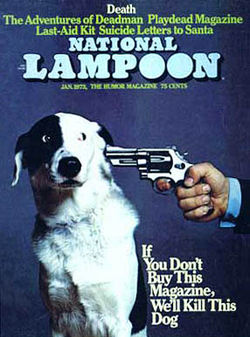Don’t ask prospects, “If we killed our product would you miss it?” It’s product management malpractice.
Don’t Ask “If We Killed Our Product Would You Miss It?”
 The business buyer views software as the promise of a relationship.This means that you need to assess not only the strength of prospects’ interest but also your customers commitment to the business relationship.
The business buyer views software as the promise of a relationship.This means that you need to assess not only the strength of prospects’ interest but also your customers commitment to the business relationship.
They often pay you not just for what your product can do today but for what you promise that it will become with their help.
This requires you to continually evaluate customer commitment to use, to pay for, to suggest improvements, and to offer testimonials and referrals that help your sales efforts.
One natural approach to evaluating customer commitment is to ask directly. The challenge is to do so in a way that affirms your commitment not only to the product but to the potential relationship with a prospect or the current business relationship with an active customer.
The National Lampoon magazine ran a famous cover in January of 1973 that said “If You Don’t Buy This Magazine, We’ll Kill This Dog.” It sold a lot of magazines.
Startups that inadvertently communicate “if you don’t buy this product we will kill it” in the B2B space are unlikely to be as fortunate. A question that attempts to test the strength of the relationship by suggesting the loss of the relationship will signal a lack of commitment that can poison a business relationship that is otherwise developing well.
In particular asking them “if they would be disappointed if they could no longer use your product” may inadvertently plant doubts in their mind as to your commitment both to the product and to your relationship with them.
Please don’t use a survey or an e-mail to assess their commitment. Have a conversation: either face to face or on the phone. If you are trying to asses their level of emotional commitment it’s much more natural and easy to do so in a conversation .
If you actively listen for indications of their level of satisfaction and commitment to the product, their tone and speech patterns will tell you much more than any checkbox, radio button, or e-mail text. Open ended questions about what they value about the product and how to improve it will normally elicit useful suggestions from customers who are even mildly committed.
Photo Creidt: magazine cover thumbnail from “Three Unforgettable Dog Photographs”
Related Blog Posts
- Customer Development is a Sequence of Prototypes
- The Limits of Customer Relationship Management Systems
- How to Ask An Expert for Help
- The Best Feedback From Your Early Customers is a Story
- The Best Way to Get Feedback From Early Customers is a Conversation
- Early Customer Conversations: Use Appreciative Inquiry and Amplify Positive Deviance

Sean, has anyone tried asking any of these? “How vital is our product/service to your operations?” or “Have you considered switching to any of our competitors?”